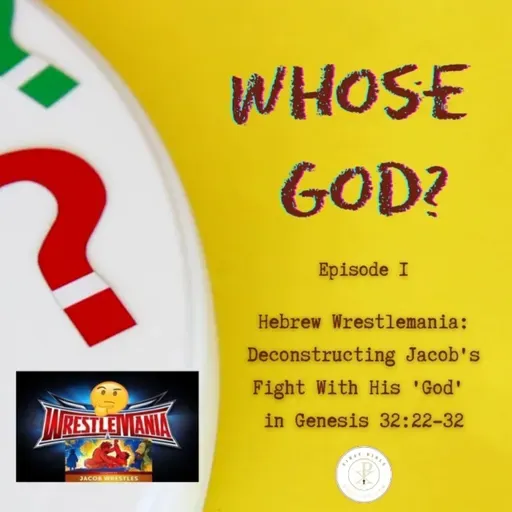
Whose God? Hebrew Wrestlemania: Deconstructing Jacob's Fight With His 'God' In Genesis 32
Pre-Nicene Perspective Podcast
For our first edition of the 'Whose God?' series we selected Genesis 32: 22-32 - you may know it as the story of the Hebew character Jacob wrestling with his 'god' - and winning the match. But the true identity of his wrestling opponent and the religion it symbolizes may surprise you.
Antaeus:
https://www.greekmythology.com/Myths/Gigantes/Antaeus/antaeus.html
Times of Israel:
https://blogs.timesofisrael.com/did-jacob-wrestle-god-an-angel-of-god-satan-or-one-of-his-angels/
Genesis 32:22-32
The Very First Bible:
https://www.theveryfirstbible.org
FBN Radio:
https://www.firstbiblenetwork.com/FBNRadio.html
Genesis is an example of a work in the "antiquities" genre, as the Romans knew it, a popular genre telling of the appearance of humans and the ancestors and heroes, with elaborate genealogies and chronologies fleshed out with stories and anecdotes.[15] The most notable examples are found in the work of Greek historians of the 6th century BC: their intention was to connect notable families of their own day to a distant and heroic past, and in doing so they did not distinguish between myth, legend, and facts.[16] Professor Jean-Louis Ska of the Pontifical Biblical Institute calls the basic rule of the antiquarian historian the "law of conservation": everything old is valuable, nothing is eliminated.[17] This antiquity was needed to prove the worth of Israel's traditions to the nations (the neighbours of the Jews in the early Persian province of Judea), and to reconcile and unite the various factions within Israel itself.[17]
---
Send in a voice message: https://podcasters.spotify.com/pod/show/firstbiblenetwork/message